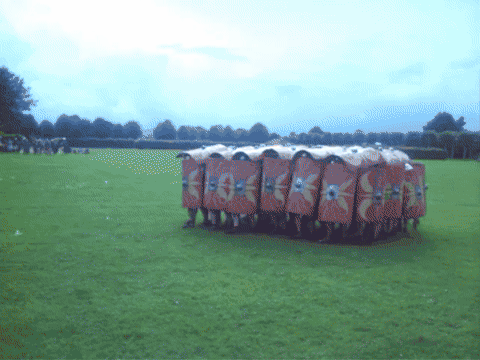The Dynamics of Cooperation as a Force Multiplier

Cooperation among individuals is a multifaceted phenomenon, manifesting in various forms and originating from diverse processes. At its core, cooperation in a limited community context signifies trust and abilities. The trust fosters a conviction within each member that others support and protect them, creating collective strength greater than the sum of its individual parts.
Trust can be cultivated through several means, with the most robust and healthy form being that which arises from shared experiences, values, and mutual respect. This kind of trust is nurtured by living together, communicating, and avoiding actions that lead to disappointment. It's a trust that is earned and given, forming the bedrock of a stable and supportive community.
Conversely, trust can also be forged through negative means, such as shared hatred or criminal activities. In such scenarios, individuals bound by a common crime or ideology develop a forced trust, necessitated by their mutual involvement in illicit activities. This form of trust is robust, but is also fragile and often unstable, as it relies on the perpetuation of negative or harmful behaviors and the false belief that criminal acts will always be directed outside the community.
Ideological or religious bonds can similarly create a sense of community, though these too can have their pitfalls. Ideologies oversimplify the complexities of life, replacing the nuances of daily existence with rigid, monolithic beliefs. While this fantasy can create a strong sense of unity, it suffers from the same fate of criminally based groups, the painful and unavoidable meetup with reality. In the case of religious fantasy the deterioration of belief is countered, among other solutions with the education of young practitioners who have yet to encounter reality.
Healthy communities, in contrast, are built on positive values such as humanity, honesty, and morality. These communities are, even if seen at the beginning as less robust, more resilient and less prone to mistrust than those founded on criminality or hatred. They are also more likely to contribute positively to broader societal advancements, whether in technology, art, or other fields.
When considering the basic force multiplier of cooperation, it's essential to recognize the inherent strength of a group. This strength is not just in numbers but also in the quality of relationships and the level of training and cohesion within the group. The common fantasy of a lone individual overpowering numerous adversaries is just that—a fantasy. In reality, a group, even a small one, can often overpower a single individual, regardless of their tactical knowledge or skills.
This understanding underscores the importance of community and the need for effective communication, trust, and training within a group. The use of a group as a force multiplier is most effective when there is a clear chain of command to coordinate actions and resolve internal issues. Leadership within a group is crucial, and it involves taking responsibility and accountability for the group's actions and decisions.
In summary, cooperation as a force multiplier is a complex and dynamic concept. It's not just about the number of individuals involved but also about the skills they have, the quality of their interactions, the values they share, and the leadership that guides them. This understanding is vital in both personal and broader societal contexts, where the power of cooperation can lead to significant achievements and advancements.
Go back to reading the other mondo in Yossi Sheriff Quotes
